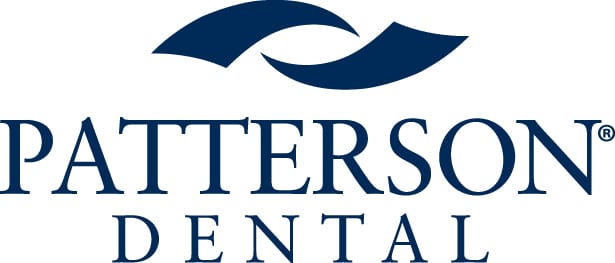By Bruce Bryen, CPA, CVA
For those dentists just out of dental school or in the process of changing jobs as an associate from one dental practice to another, think of the power that is possessed when interviewing for that position. Dental school is completed and the ability to earn and learn while on the job is on the horizon. Do not discount what the owner or interviewer sees when attempting to hire someone to fill a vacancy created when another associate just left the practice or when expansion is occurring and the need to service patients is just about at its highest.
The graduate from dental school or the associate changing jobs is in a strong position to request an excellent package of benefits and compensation. Some associates may feel a lack of confidence or some type of inadequacy holding back the expression of assuredness during the interview. Maybe the inability and awkwardness of applying for a job prevents the associate from being forceful enough to get the best for himself or herself while in this process. The associate may be looking at the dental practice and be a little intimidated by the age or the success of the owner and the practice. The owner or whomever is conducting the interview process wants an associate with the qualifications included that are held by the job applicant in this process. That is why it is occurring.
Those skills held by the associate are just what the owner wants. An excellent compensation package should be received and include nice benefits as well. The dentist sees a gold mine in the new associate and wants him or her since this is where the growth of the practice will be occurring. Recent hires should think not just of current and future compensation, but of the benefits like the type of employer sponsored qualified retirement plan that the dental practice is offering.
There are so many types of retirement plans that the associate should include a serious discussion about the one or ones at the office. It is never too early to begin this type of personal individual planning.
What other benefits and incentives are part of the job offer?
When discussing what is included in the employment agreement, find out about whether the state in which the job proposal is being offered has a law about non-compete agreements. Some states have rules where no enforcement procedures exist for non-compete and non-solicitation clauses in an employment agreement, so they have no teeth even if they are included in the contract.
Professional liability insurance should be a component and the dental practice should include that benefit for the employee. This is because the cost of the policy is minimal compared to what the associate will be producing for the owner.
The size of the dental practice is also an important consideration to the associate. Based on the number of employees in the practice, the offer of employment may be geared towards that and not include many items that are available if the practice is too small. Of course, the smaller practice would probably have a better opportunity for an interest of ownership to be acquired since the owner’s exit strategy should also be discussed if age is a factor with the owner. That is something that will be easily recognizable during the interview.
After the interview and when the employment contract is offered, having a dental CPA review it would be helpful since that person will have experience with others who have been hired as associates and with what the market of dental practices in the area have been offering to associates. It is worth the cost of the review.
What about guarantees and opportunities for advancement?
The stress of production should not be placed on the associate in the early stages of the job once it has been accepted. There should be a time frame when there is a guarantee of a salary while learning the techniques and nuances of the owner and his or her dental practice. Also, the associate will be getting to know the patients and developing relationships with them as well as the other employees.
With most practices there is a percentage of collections that is used as the benchmark for the associate to earn his or her livelihood. Depending on the geographic area of the country, these percentages may range from 25% to 40% with or without subtractions for lab fees.
During the early period of adjustment for the new associate, the last thing needed is a push for production from someone who is still learning about the dental practice. The associate and the owner should agree on a certain amount of time when there is a salary without the need for production analysis. This can be as short as three months before the associate is paid based on the collections stemming from his or her production. Without this guarantee, the owner and the associate may be sharing a stress-related tension that will help neither since it is not practical to expect the new hire to be able to produce at a maximum level during the early learning curve.
Administrative duties
So many dental school graduates have little knowledge of the financial affairs of the dental practice. There are quite a few owners of practices with a small understanding of how the finances of the practice run as well. This may be surprising. It is a good area for the associate to learn something about this while at the new practice if he or she has not had some type of training in the administrative side of the dental practice.
Real world training that is not from a book can be many times better than going to school to learn about this area of expertise. There will be questions that the owner will not be able to answer. It’s a great time to get permission to speak to the dental CPA to learn more from a professional finance person. This education will be invaluable.
As an informational piece, many of the DSO leaders have a strong knowledge of administration. This is a point of advancement up the DSO ladder that many new associates can’t take since they don’t understand these details of the business side of the dental practice.
Bruce Bryen, CPA, CVA is a certified public accountant with more than 45 years of experience and is a part of Baratz & Associates CPAs. He specializes in deferred compensation, such as retirement planning design; income and estate tax planning; determination of the proper organizational business structure; asset protection and structuring loan packages for presentation to financial institutions. He is experienced in providing litigation support services to dentists with Valuation and Expert Witness testimony in matrimonial and partnership dispute cases. He is also a financial writer for several dental journals. You may contact him at 609-502-0691 or at Bryenb@baratzcpa.com.
Next article: Advice if you’re becoming an associate


